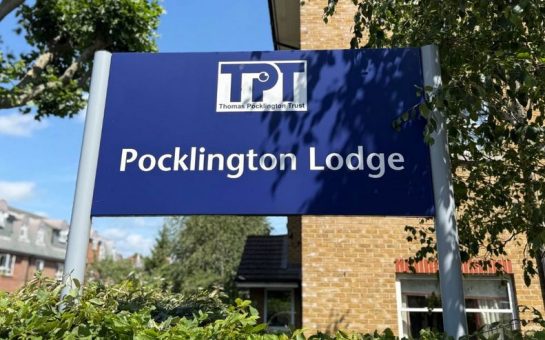The number of Romanian speakers living in London more than trebled between the years 2011 and 2021, ONS data shows.
Harrow had the highest percentage of all London boroughs with over 7.5% of the population reporting it to be their main language.
Other London boroughs with a large number of Romanian speakers included: Newham (5.26%); Barking and Dagenham (4.78%); Brent (4.75%) and Redbridge (4.31%).
Ramona Gonczol, an associate professor in teaching Romanian at UCL said: “The main economical factor for Romanians emigrating to the UK is lack of employment opportunities in certain parts of Romania where heavy industry, mining and the manufacturing industries closed down after the fall of communism.
“However, there are many parts of Romania that are flourishing so the main immigration comes from the east and the south of Romania.
“There is also a highly skilled, highly educated and highly sought-after section of the Romanian community, with people who work in international business, financial and investment companies, as well as the NHS, academics and artists.”
She drew attention to Alina Cojocaru, one of the prima ballerinas of The Royal Ballet and Sir George lacobescu, Chairman of the board of directors of the Canary Wharf Group.
Alina Cojocaru as Princess Aurora. pic.twitter.com/nm9u0LSUAr
— For Balletomanes (@forballetomanes) February 13, 2023
Romania and the EU
In 2007, Romania and Bulgaria joined the EU as part of an enlargement programme.
But for the first seven years controls were placed on both countries which curtailed the ability of migrants to work in other countries.
When the previous census took place in 2011, four years after the country’s accession to the EU, the number of Romanian speakers in England and Wales was relatively low, despite the country’s newfound membership.
However, on 1st January 2014, all EU countries were legally required to lift these controls.
After Polish, Romanian is now spoken more than any other foreign language in England and Wales.
Professor Gonczol, who is a cultural advisor on the Romanian language for a variety of UK institutions, explained why certain London boroughs become hubs for the Romanian community.
She said: “Usually it starts rather randomly, with a small nucleus of Romanians preferring one area to another. This in turn attracts more newcomers as they can share accommodation and help one another.
“I strongly believe the Romanian community enhances the social, cultural and professional fabric of the UK population as well as promoting multilingualism in society.”
Rise in international tuition fees
Nina-Giorgiana Vladila, a Romanian higher education professional who has lived in the UK since 2010, said: “There is a possibility the number of Romanian speakers will plateau or maybe even fall post-Brexit.
“This is not only a result of freedom of movement ending. A large percentage of Romanians may have come to the UK via universities, a route that is now triple the cost it was whilst the UK was in the EU.”
Prior to Brexit, EU students paid the same amount as home students, just over £9,000 per year, and were entitled to student finance.
Since the change in international fee policy in August 2021, costs have risen in some cases up to £38,000.
Consequently, the number of EU students enrolled on undergraduate courses has fallen significantly.
English proficiency
Across the capital, 1.83 million residents aged three and over spoke a main language other than English.
The majority of people whose main language wasn’t English said they could speak it either very well (46%), or well (35%), although this varied significantly across London boroughs.
In Kensington & Chelsea, for example, 63% felt they had a high level of English.
Similar results were found in Richmond (62%), Hammersmith and Fulham (60%) and Camden (59%).
Conversely, Enfield recorded a low percentage in this category (34%) as did the boroughs of Newham and Haringey (37%).





Join the discussion